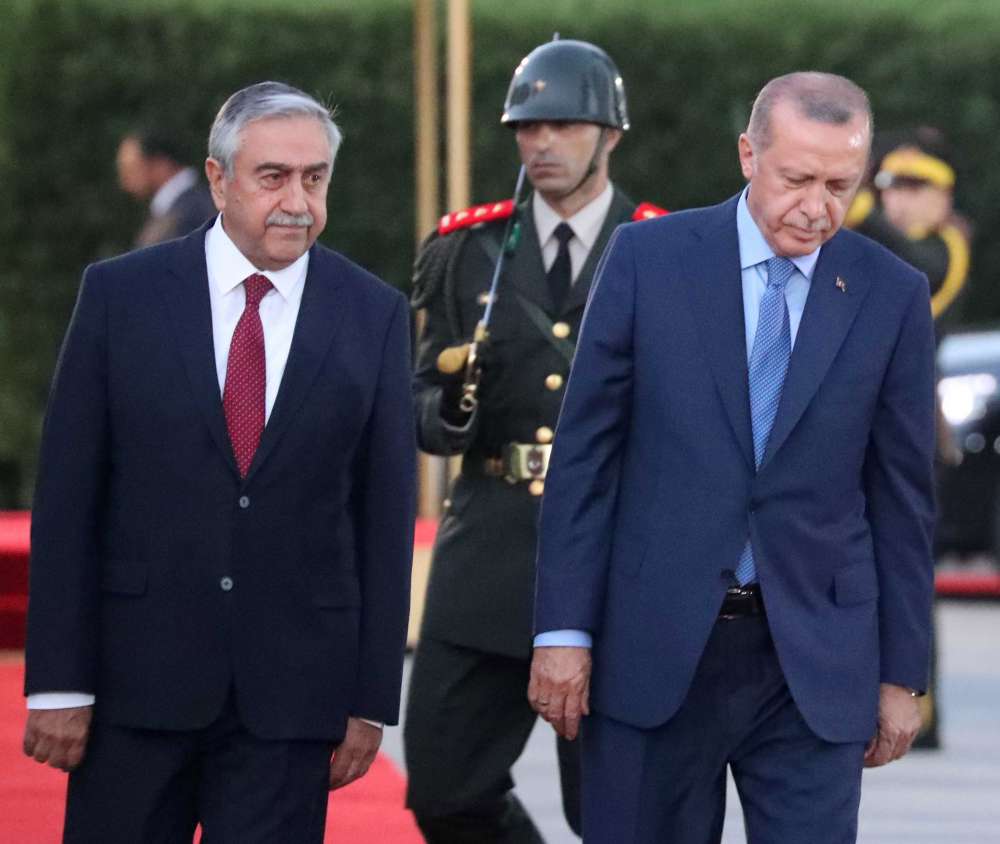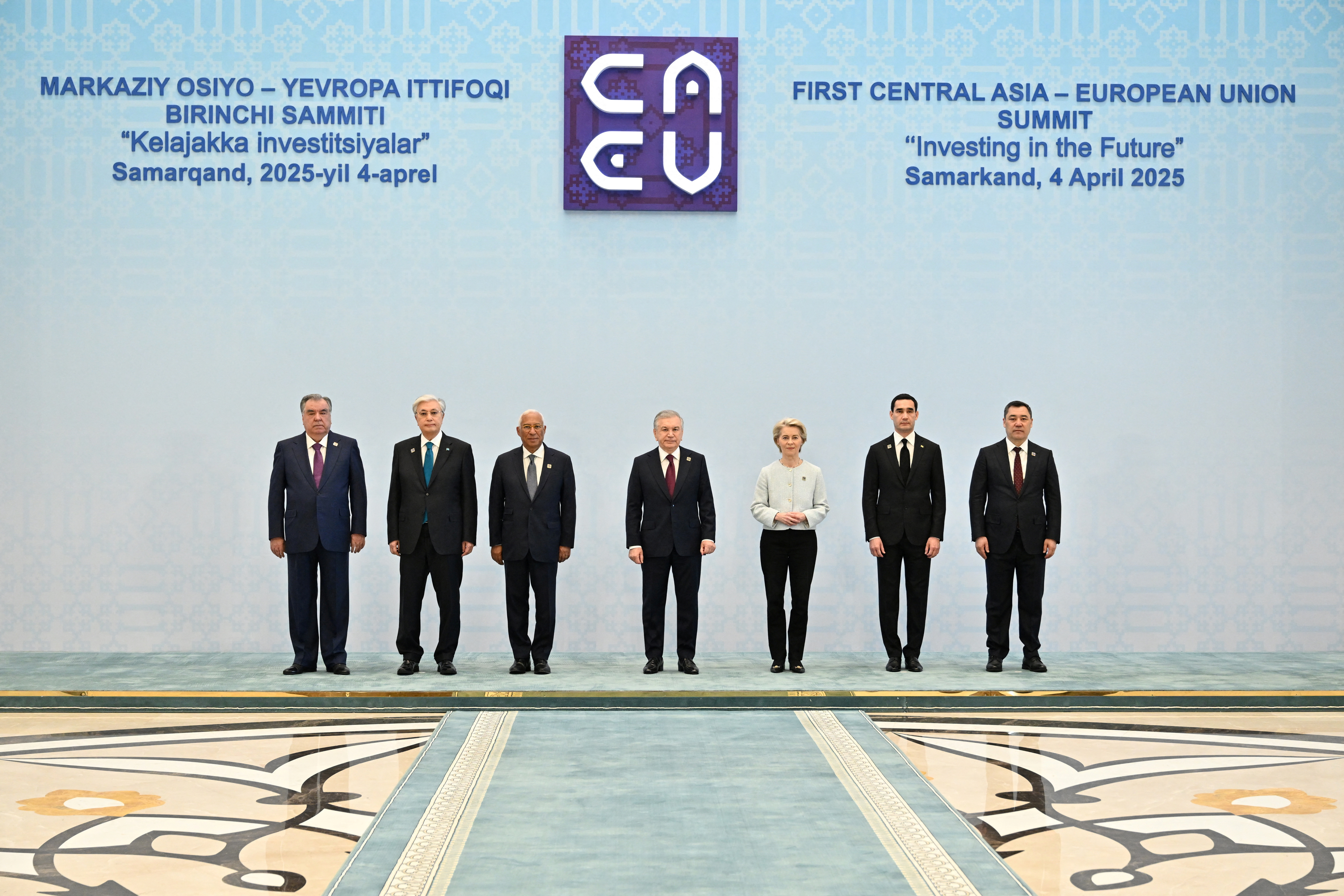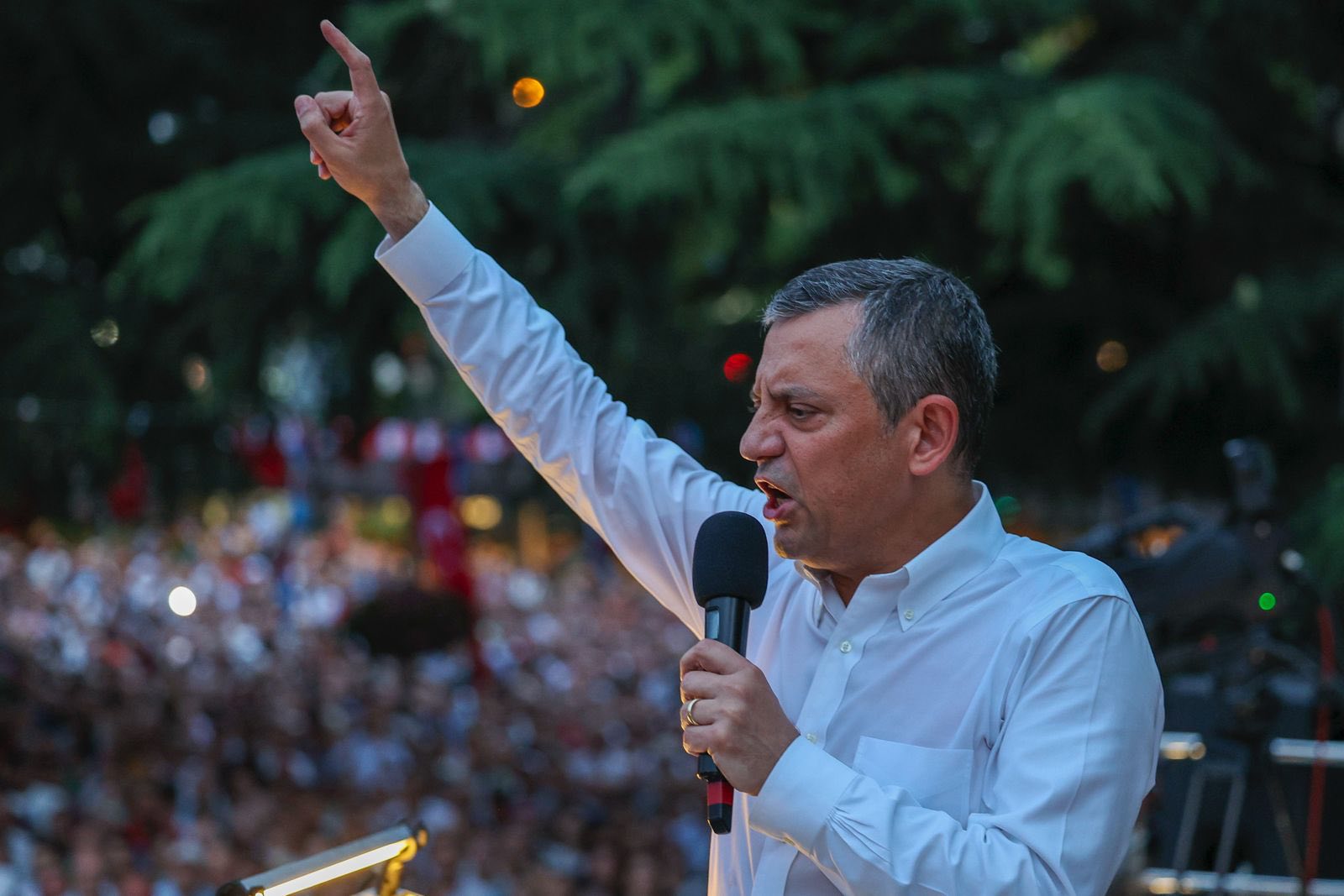It is “not right” to call northern Cyprus a “baby homeland”, Turkish opposition party CHP leader Ozgur Ozel said.
He made the comment when asked by a journalist about the north’s minimum wage, which was earlier this week set at a gross figure of 51,202TL (€1,076), working out at a net 44,546TL (€936).
“I would like to point out that the term ‘baby homeland’ is not right. Cyprus is not a ‘baby homeland’. The Turkish Republic of Northern Cyprus is a state with a constitution, a parliament, MPs, and is not in a situation where one can think of it as a baby,” he said.
He then told the journalist that “this is not your fault”, but stressed, “I reject this terminology which the government is trying to impose”.
Of the minimum wage, he said the north’s new minimum wage is “not enough for the workers there”, but added that the fact that it is more than twice as much as the national minimum wage in Turkey is “an indicator of how poorly governed Turkey is”.
The minimum wage in Turkey is a gross figure of 26,005.50TL (€546), working out at a net 22,104TL (€464). In the Republic of Cyprus, the minimum wage is a gross figure of €1,000, working out at a net €886.
Ozel has made similar comments about the use of the term “baby homeland” in the past, saying during a visit to the island last year that the north is in fact a “sister country” to Turkey.
The term “baby homeland” is often used by Turkish politicians and commentators to refer to the north, with more nationalist Turkish Cypriot politicians returning the favour and referring to Turkey as their “motherland”.
The north’s ‘foreign minister’ Tahsin Ertugruloglu is a frequent user of the terms, while others, including ‘deputy prime minister’ Fikri Ataoglu, and on occasion Turkish Cypriot leader Ersin Tatar, have employed them.

However, the terms have long been unpopular among the progressive wing of Turkish Cypriot politics, and their use was the first source of dispute between former Turkish Cypriot leader Mustafa Akinci and Turkish President Recep Tayyip Erdogan following the former’s election in 2015.
Akinci had said in his victory speech that “the relationship with Turkey, that of a motherland and a baby homeland, must end”, and had told the BBC before that year’s election that “it is time to put aside the narrative of a mother and a child, which has been abused for years, and establish a sibling relationship.”
Erdogan was less than enthused, however, and issued a swift rebuttal.
“When you say ‘we are two sister countries’, very different pictures emerge. [Akinci] needs to hear what he is saying. There is a miraculous reason why Turkey has been supporting northern Cyprus until now. There is no need to talk about it. Even working as siblings undoubtedly has certain conditions,” he said.
He added, “working as a baby homeland also has a price. This country has paid a price to North Cyprus and continues to pay this price. We have given martyrs. Why? These steps have been taken because the baby homeland requires that we pay a price.”
![File photo: Recep Tayyip Erdogan and Donald Trump [Reuters]](https://cyprus-mail.com/wp-content/uploads/2025/04/trump-erdogan-reuters.jpg)
Aside from terminology, Ozel has also been vehement in his criticism of Turkey’s government’s handling of its relationship with Cyprus, saying in April that Turkey’s policy on Cyprus has “collapsed”.
He had earlier claimed that the status of Cyprus was a key part of a deal brokered by Erdogan and United States President Donald Trump to allow the arrest of Istanbul mayor Ekrem Imamoglu, the man his party has since chosen to stand in the next Turkish presidential election, in March.
At the time, he referred to Imamoglu’s arrest as a “coup d’état”.
“Recep Tayyip Erdogan received the permission for the March 19 coup d’état from Trump. The March 19 coup d’état was carried out with the support of the US. After the March 19 coup d’état, the Cyprus case was abandoned, in return for [the US] remaining silent about the March 19 coup d’état,” he said.
“No voice was raised when the Turkic republics recognised southern Cyprus,” he said, in reference to a joint declaration signed by Kazakhstan, Kyrgyzstan, Uzbekistan, Turkmenistan, and non-Turkic Tajikistan with the European Union in April which ruled out the prospect of any of them recognising the north as an independent country.
As such, he said, “northern Cyprus was isolated, and what they called the ‘baby homeland’, to us, the ‘brother homeland’, was sold by the AK Party”.

Erdogan’s AK Party’s spokesman Omer Celik denied the accusations, describing them as “both a political lie and political incompetence”.
He added, “Ozgur Ozel’s questioning of our president’s sensitivity regarding the Turkish Cypriot cause and the TRNC is nothing but political ignorance”.
“Both our nation and the international community are well aware of our president’s sensitivity regarding the Turkish Cypriot cause and the TRNC.”
The joint declaration which precluded the Turkic states’ recognising of the north was signed in the Uzbek city of Samarkand earlier this month said all five countries “reaffirmed our strong commitment” to United Nations security council resolutions 541 and 550.
Resolution 541 said the security council “deplores the declaration of the Turkish Cypriot authorities of the purported secession of part of the Republic of Cyprus” while calling on UN member states not to recognise the north.
Resolution 550 said it “reiterates the call upon all states not to recognise the purported state of the ‘Turkish Republic of Northern Cyprus’, set up by secessionist acts, and calls upon them not to facilitate or in any way assist the aforesaid secessionist entity”.






Click here to change your cookie preferences